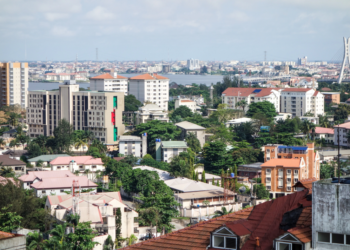The International Monetary Fund (IMF) has slashed its forecast for Nigeria’s economic growth for 2024 from 3.1% declared in October to 3.0 representing a 0.1% decline.
The fund stated this in its revised World Economic Outlook for 2024 and 2025.
According to the report, Sub-Saharan Africa’s economy will grow by 3.8% in 2024 and 4.1% in 2025- a drop from the 4.0% economic growth or 2024 initially forecasted in October.
The IMF also slashed South Africa’s economic growth prospects by 0.8% from the initial projection of 1.8% in October 2023. It noted that rising challenges in the nation’s transport sector will stifle economic growth this year.
- The Fund stated, “In sub-Saharan Africa, growth is projected to rise from an estimated 3.3% in 2023 to 3.8% in 2024 and 4.1% in 2025, as the negative effects of earlier weather shocks subside, and supply issues gradually improve. The downward revision for 2024 of 0.2% point from October 2023 mainly reflects a weaker projection for South Africa on account of increasing logistical constraints, including those in the transportation sector, on economic activity.”
World economic growth projection
The Washington-based institution also announced in its quarterly World Economic Outlook on Tuesday that the global economy is projected to grow by 3.1% this year, an increase from the 2.9% forecasted in October. The IMF maintained its forecast for 2025 at 3.2%.
Risks to the global economy
The IMF highlighted several downside risks, including potential spikes in commodity prices due to geopolitical shocks and global supply disruptions.
These disruptions could stem from events like attacks by Houthis in the Red Sea or an escalation of conflicts in the Middle East.
Additionally, the IMF noted the risk of persistent inflation, which may necessitate central banks to maintain higher interest rates for extended periods.
The IMF emphasized on its concern regarding the possible fragmentation of global trade into competing blocs. It projected world trade growth of 3.3% in 2024 and 3.6% in 2025, which is below the historical average rate of 4.9%.
According to the IMF, nations implemented approximately 3,000 new trade restrictions last year, nearly three times the number recorded in 2019.





















